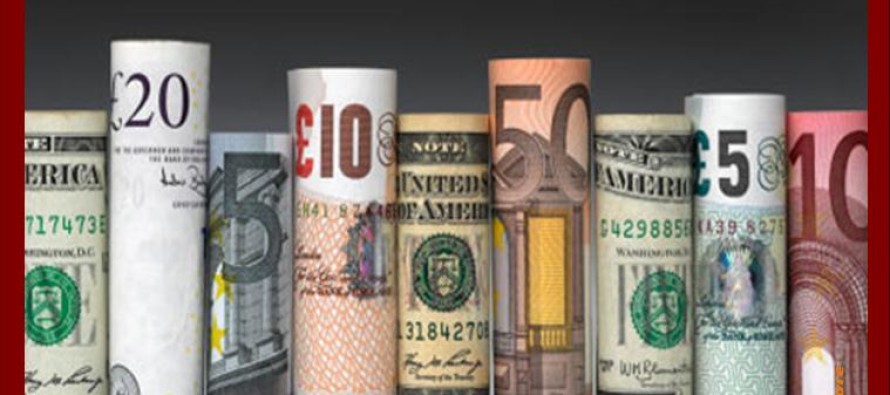As the Central Bank of Nigeria (CBN) at the weekendordered all Deposit Money Banks (DMBs) to sell forex to travellers over the counter, the Association of Bureaux De Change Operators of Nigeria (ABCON) has kicked against the order calling on the regulator to review BDC’s dollar purchase rate to align with rate commercial banks’ buying rate..
The CBN spokesman, Isaac Okoroafor, in a circular at the weekend said all DMBs have been mandated to buy and sell foreign exchange to travellers (both customers and non-customers) upon presentation of relevant, valid travel documents such as visa and tickets over the counter.
Okoroafor added that all travellers shall be attended to immediately at the banks’ counters, stressing that any contravention shall be sanctioned by CBN.
He advised any customer who was denied foreign exchange as directed by the apex bank to notify the CBN through appropriate channels.
The CBN spokesman said the order became necessary for banks to ensure that eligible travellers are able to access foreign exchange and make liquidity available in the market.
For the Bureau De Change (BDC) operators, Okoroafor said, “all BDCs shall henceforth access forex from CBN on Mondays, Wednesdays and Fridays. It is compulsory that all BDCs access forex at least three times weekly. Any BDC that fails to access the forex window at least three times weekly shall have its licence reviewed by CBN. Compliance is compulsory,” he explained.
But ABCON yesterday rejected the directive, urging the regulator to review BDC’s dollar purchase rate to align with the commercial banks’ buying rate.
Its President, Alhaji Aminu Gwadabe, said in a statement that CBN’s directive mandating BDCs to make such purchases was not in line with global best practices and should be put on hold.
He said: “The CBN’s directive at this time of our operational difficulties is no doubt precarious and vague and was intended to emasculate a sector that has helped the system to stabilize and thus unacceptable”.
Gwadabe said the regulator should first merge BDC dollar buying rate with that of commercial banks and also pay ABCON disbursement fees as it is practised globally. For instance, Travelex also collects forex disbursement fees from the CBN.
Gwadabe, therefore, recommended that the CBN cuts the three market days for buying dollars to two at $30,000 per market day.
He said: “The rate between the banks and DBCs should be merged for uniformity and fairness. A situation where the banks buy dollar from the CBN at lower rate than the BDCs is no helping its market stability drive.
Besides, ABCON should be considered for disbursement fees like Travelex in the collection centres to ameliorate the new assignments”.
Operators insist that making Fridays as market days and funding same day will be difficult to achieve and therefore should be discouraged.
Gwadabe assured the CBN of ABCON and BDC’s continuous support in enabling the regulator achieve its core mandate of ensuring exchange rate stability and liquidity access.
Gwadabe also added that: “The BDC sector is confronted with many challenges such as multiple exchange rate, abnormal bank charges, Value Added Tax (VAT) and Commission on Turnover (COT), parallel market operators and illegal International Money Transfer Operators (IMTOs), porous international boarders, complex documentation requirements and poor capacity/ skills of operators”.
Continuing, he said: “For instance, the increasing difficulties arising from over regulation and complex documentation requirements that licensed BDC operators are facing in carrying out their daily legitimate operation remain worrisome. These hitches have negative impact on BDCs’ efforts toward compliance to statutory and regulatory requirements. For instance, six units within the CBN are involved with BDC regulations, supervision, licensing, monitoring, saying this constitutes multiple regulation of a unit of the financial sub-sector that is only involved as a small market player”.
He said a BDC operator is expected to render daily, monthly, quarterly, half yearly and annual returns to these various departments of the same corporate body, which could be very cumbersome, repetitive and time consuming for both the operator and the regulator.
“ABCON is therefore using this opportunity to appeal to the CBN to take urgent steps to review the rate at which the dollar is sold to BDCs in order to boost ongoing recovery of the naira against dollar. Obviously, the BDC business has been badly affected by “uncompetitive rate as the CBN sells dollars to BDCs at higher rate compared to what it sells to commercial banks, yet both institutions target the same market segment and customers. The BDCs buy dollar from the International Money Transfer Operators (IMTOs) at N360/$1 and sell to end users at N361.5/$1 while the CBN sells to commercial banks at N357/$1 and the banks sell to end users at N360/$1,” he said. He urged the CBN to review BDC rate to align with that of the banks since both sectors serve the same customers.
The ABCON boss also want the apex bank to make BDC transactions Value Added Tax (VAT) and Commission on Turnover (COT) exempt and reduce BDCs licence renewal payments.




